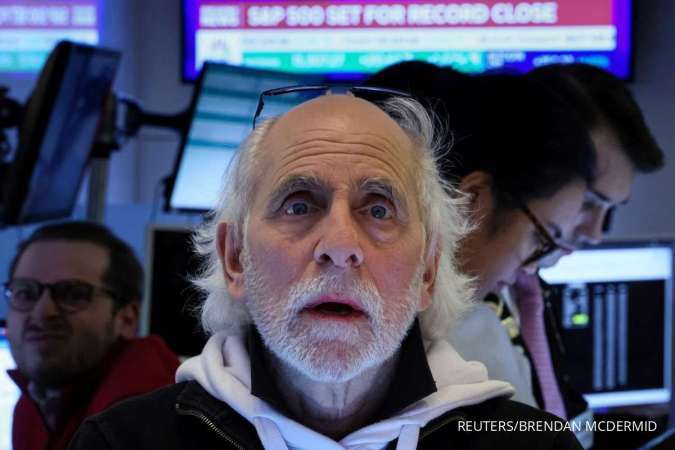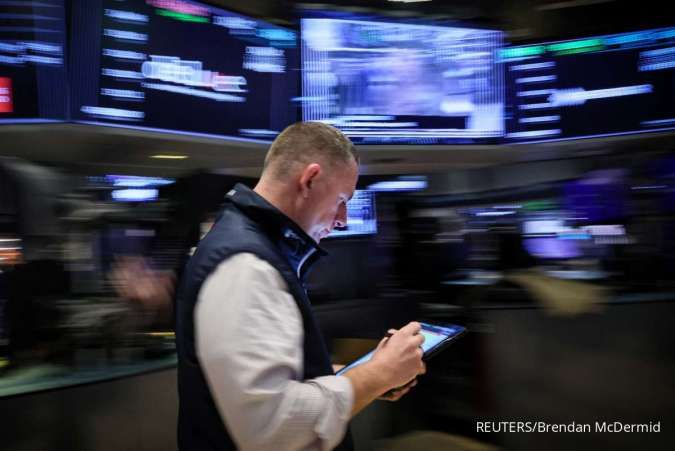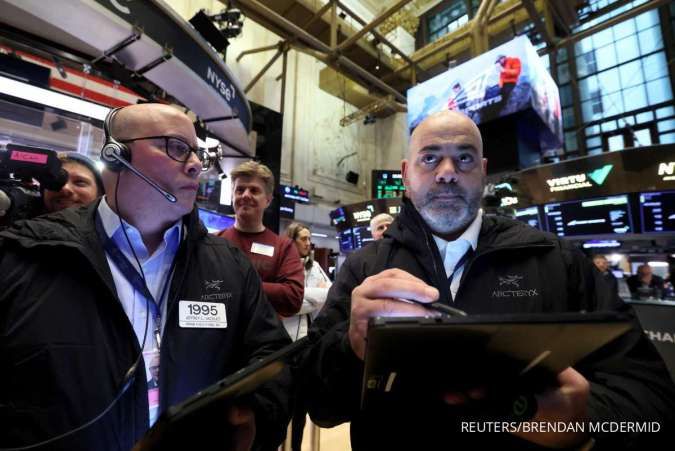WALL STREET - NEW YORK, March 26 (Reuters) - U.S. stocks slipped on Tuesday, giving up modest gains late in the session to send the Dow and S&P 500 to their third straight decline, as investors awaited economic data in a holiday-shortened week to gauge the Federal Reserve's policy path.
Stocks struggled for upward momentum even as Tesla TSLA.O gained 2.92% after CEO Elon Musk unveiled the electric-vehicle maker's one-month trial of its Full Self-Driving technology to existing and new customers in the United States. The stock is up about 4% for the week but remains down more than 28% for the year.
The focus remains on a key reading of the Personal Consumption Expenditures Price Index (PCE), the Fed's preferred inflation gauge. The data is due on Friday, when U.S. markets will be shut for the Good Friday holiday.
The index is expected to have risen 0.4% in February and 2.5% annually. Core inflation, which excludes volatile food and energy components, is estimated to have advanced 0.3% last month, keeping the annual pace at 2.8%, economists polled by Reuters said.
Read Also: Stocks and Bonds Move Sideways in Holiday-Shortened Week
"The big number is Friday. That's the number everyone's going to pay attention to and whatever happens in the meantime is going to be noise, so I don't anticipate a whole lot happening until we get that data point," said Stephen Massocca, senior vice president at Wedbush Securities in San Francisco.
"The one thing that would be death, death for this market is if somehow something came out that led people to believe that the fed funds rate has not topped out yet. If for some reason people thought the Fed was even giving an inkling to raising rates further, stand out of the way."
On the economic front, orders for long-lasting U.S. manufactured goods increased more than expected in February, while business spending on equipment showed tentative signs of recovery. In a separate report, the Conference Board said its consumer confidence index was little changed at 104.7 in March.
The Dow Jones Industrial Average .DJI fell 31.31 points, or 0.08%, to 39,282.33. The S&P 500 .SPX lost 14.61 points, or 0.28%, at 5,203.58 and the Nasdaq Composite .IXICslid 68.77 points, or 0.42%, to 16,315.70.
The three major U.S. indexes hit record highs last week after the Fed maintained its projection for three interest-rate cuts this year.
Markets have been slowly increasing expectations the central bank will cut rates by at least 25 basis points in June, currently pricing in a 70.4% chance, the CME's FedWatch Tool showed, up from 59.2% last week.
Trump Media & Technology group DJT.O jumped 16.1% to close at $57.99 after surging as high as $79.38 as it kicked off its first day of trading after completing a reverse merger with a blank check firm.
Read Also: Oil Little Changed as Markets Weigh Russian Supply Woes
McCormick MKC.N jumped 10.52% as the best performer on the S&P 500 after the spice maker beat market expectations for first-quarter sales and profit.
Seagate Technology STX.O climbed 7.38% after Morgan Stanley upgraded the computer hard-drive maker's rating to "overweight" from "equal-weight."
United Parcel Service UPS.N shares tumbled 8.16%, however, after announcing its 2026 forecast.
Declining issues outnumbered advancers by a 1.24-to-1 ratio on the NYSE. On the Nasdaq, declining issues outnumbered advancers by about a 1.34-to-1 ratio.
The S&P 500 posted 33 new 52-week highs and one new low while the Nasdaq recorded 122 new highs and 124 new lows.
Volume on U.S. exchanges was 10.43 billion shares, compared with the 12.23 billion average for the full session over the last 20 trading days.
Read Also: IDX Composite (IHSG) Slip 0.16% to 7,365 on Tuesday (26/3)
Trading volumes are expected to be light throughout the week, thinning out further as the holiday approaches.
By Chuck Mikolajczak
(Reporting by Chuck Mikolajczak; Editing by Richard Chang)
/2024/03/25/840587550.jpg)













